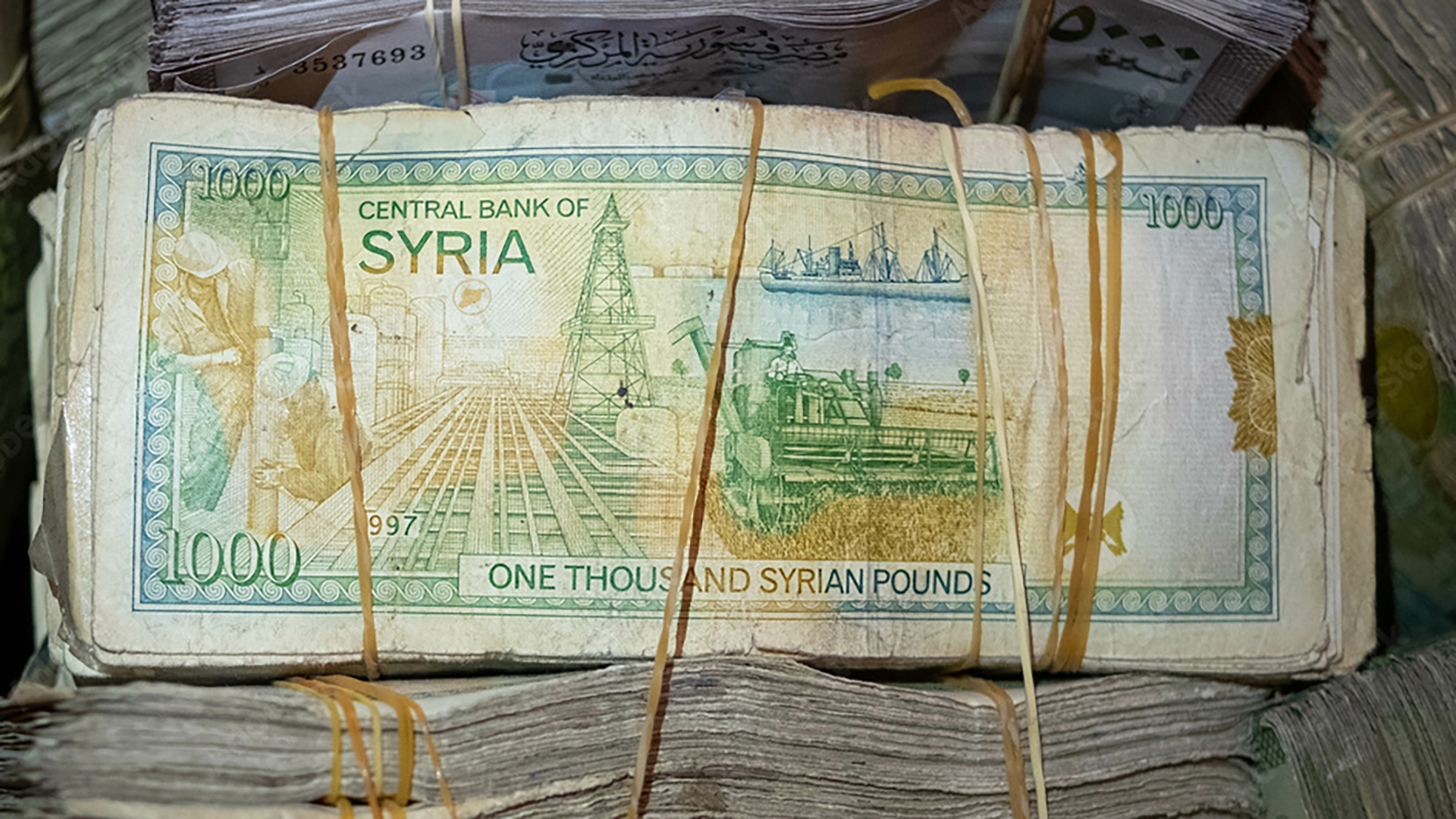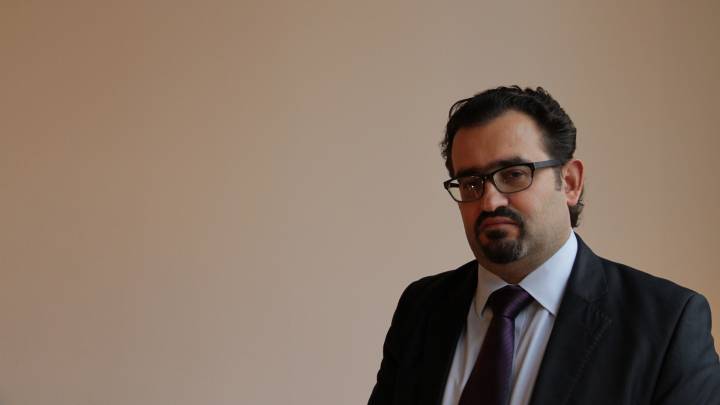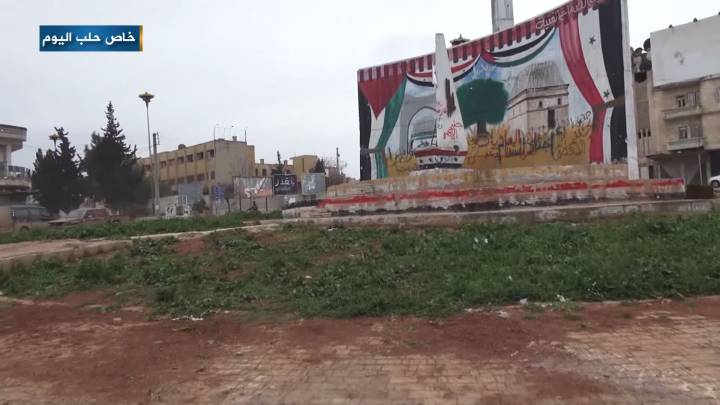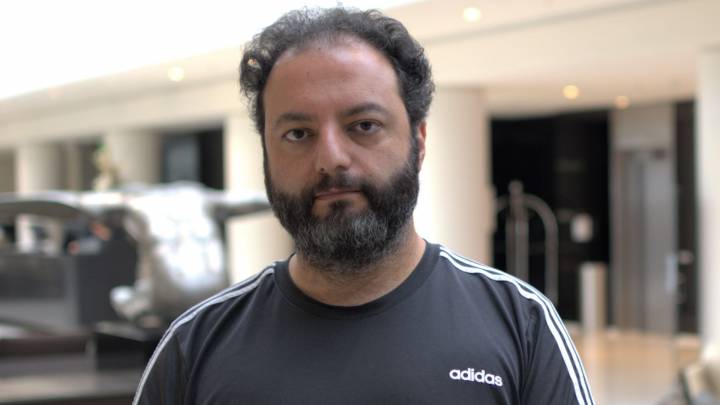The war in Syria has helped a new generation of businessmen to wealth and influence, but also out them at the mercy of the Assad regime. On a deal that still benefits both sides.
The rise of new business figures in Syria since 2011 has revealed significant changes within the country's business elite. These emerging figures, previously unknown, gained prominence due to the country's transition into a war economy and the opportunities brought forward by it. As the conflict's intensity decreased, these war-profiteers transformed into fully-fledged businessmen, converting their wartime earnings into substantial stakes in the economy. Throughout this process, the former business elite saw itself marginalised, with some of the most prominent pre-2011 individuals having fallen out of the regime’s favour.
Syria's crony capitalism has roots dating back to the 1990s. As Bashar Al-Assad took power, however, a new generation of crony capitalists emerged. These businessmen had direct affiliations with influential military figures or senior civil servants and seized opportunities from the nation's economic moderate liberalisation. The ascension of this fresh crop of businessmen found its epitome in the establishment of Cham Holding and Souria Holding, which brought together most of the emerging business elite of the 2000s, with only a few old guard members joining them.
Yet, the 2011 uprising led to the nearly total collapse of traditional business activities. Entrepreneurs saw their businesses crumble as investments and economic operations came to a standstill. To fill the gap, the country had to transition into a war economy, leading to new activities such as cross-border smuggling, drug trafficking, and extortion.
A new generation of businessmen, known as war profiteers, emerged from this state of affairs. These figures lacked direct affiliations with traditional business circles but managed to maintain crony connections with individuals close to power, while some relied on local networks to position themselves as essential for the regime.
New war-economy opportunities
As the war ravaged the conventional business sectors, the ascent of war-profiteers to prominence hinged on a distinctive array of activities closely intertwined with the war-driven economy.
Militia Management and Checkpoint Extortion: Among these activities, the most important involved the setting-up of militias and the extortion at checkpoints. This activity specifically spread during the conflict's early phases. Militias, and even elements within the regime's forces, levied these charges under various pretexts such as protection or funding the war effort. Consequently, this venture facilitated the prosperity of select businessmen, enabling them to expand their economic ventures after amassing substantial fortunes.
Brokering Deals with Armed Groups: Another activity pursued by businessmen to bolster their standing within the regime involved brokering agreements with armed groups aimed at securing key resources. As some of the most productive regions of the nation slipped out of the regime's control in the conflict's early stages, the regime had to negotiate with entities such as the Syrian Defense Forces and the Islamic State to acquire commodities such as oil and gas. This, in turn, paved the way for businessmen to conclude pivotal agreements on behalf of the regime.
Liaison with Russia/Iran and Foreign Representation: Concurrently, the escalating influence of Russia and Iran, the primary backers of the regime, prompted certain businessmen to act as intermediaries for foreign governments. This role involved forging strategic alliances, active lobbying efforts, and championing foreign interests inside Syria. Leveraging their influence in Moscow, Tehran, and on the international stage, these businessmen participate in international business forums, advocating for investments in Syria, all while functioning as conduits for foreign investors in the Syrian market.
Acting as a Front for Influential Figures: Notably, influential businessmen have also assumed the role of proxies for powerful individuals closely affiliated with the regime, including the presidential couple and their relatives. These intermediaries effectively shield these influential figures from scrutiny, thus streamlining their access to valuable state resources and lucrative contracts, thereby amassing both economic and political influence.
Drug Smuggling: A more recent development in Syria involves drug smuggling, particularly the trade in Captagon. Over the past few years, Syrian businessmen have ascended to prominence due to their involvement in the illicit drug trade. Given that these narcotics now constitute a substantial portion of the Syrian regime's revenue, Syrian entrepreneurs find opportunities for engagement in every facet of the narcotics industry, from production to transportation, allowing them to reap significant benefits.
Considering these new activities, businessmen who accompanied Bashar Al-Assad’s rise to power and successfully adapted to the evolving war economy managed to maintain, and even reinforce their economic and social capital. Figures like Fares Shehabi, Mohammad Hamsho, Fahd Darwish, Samer Al-Dibs, George Heswani, and Tarif Al-Akhras stand out in this regard.
For instance, Messrs. Shehabi and Hamsho maintained prominence through close ties with the Assad family, acting as fronts for their business ventures. Messrs. Darwish and Dibs leveraged overseas contacts to facilitate Syrian-foreign business connections. Mr. Heswani utilised his prior oil sector influence to broker oil deals with the regime and the Islamic State.
Meanwhile, "war-profiteers," unknown before 2011, amassed wealth mainly through conflict-related activities. Notably, Samer Foz, Hussam and Baraa Katerji, Yassar Ibrahim, Khaled Zubaidi, Khodr Ali Taher, Amer Khiti, and Wassim Qattan emerged as vital regime assets. Foz, once obscure, earned comparisons to Rami Makhlouf. The Katerji brothers secured a significant economic stake through exclusive regime deals and gained political importance. Yassar Ibrahim and Khaled Zubaidi, initially unknown, signed significant contracts for key assets, often seen as fronts for powerful regime figures, including the presidential couple. Taher and Khiti rose to fame through checkpoint management by regime forces and affiliated militias.
Takeover of the economy by the new business elite
Due to the growing influence of these businessmen, significant portions of the economy have fallen under their control. While economic co-optation is not new in Syria, the new dynamics underscores the changes brought about by the conflict in the business landscape.
The most profound impact of this shift is evident in the oil and gas sector. Traditionally dominated by Mahrukat, a state entity linked to the Ministry of Petroleum that held a monopoly on importing, trading, and distributing oil products, the Katerji brothers have effectively established a near-monopoly on oil product imports into Syria. Even though other private entities were punctually allowed to import energy products, BS Company, affiliated with the Katerjis, has been endorsed by major Syrian chambers of commerce and industry, including those in Damascus, Damascus countryside, Aleppo, Homs, Adra, Sheikh Najjar, and Hessia, as the preferred source for oil products, including fuel oil, gas oil (mazout), and gas.
The telecommunications industry has also seen a significant transformation, with Yassar Ibrahim emerging as a key figure since 2020, a shift symbolic of 2000s business elite’s sidelining. Ibrahim acquired a controlling stake in Syriatel in 2021, the country's largest telecommunications operator, following Rami Makhlouf's decline. A few months earlier, he obtained a substantial stake in the second operator, MTN-Syria, through his daughters. Additionally, Wafa Telecom PJSC was granted the first mobile network licence in Syria in 21 years in February 2022, with most shareholders having ties to Ibrahim.
While not encompassing entire sectors, there have been instances of significant contracts awarded to businessmen that had emerged out of the blue, further marginalising previously established ventures. In 2017, one of Khaled Zubaidi’s companies was awarded a 45-year contract to manage the Ebla Hotel and Omayad Palace, the country's largest hotel and conference venue. The contract faced criticism in local media for favouring private investors. In October 2022, another of his companies secured a $41.50 million, 45-year contract to build a commercial and tourist facility on state-owned land in Damascus. Similarly, Mr. Qattan received multi-million-dollar contracts in 2017 and 2018, despite his prior obscurity. These included the controversial management of the Qassioun Shopping Mall, one of Damascus's largest malls. There too, local media questioned the contract's value and the removal of the previous management while the contract was still in effect.
Emerging war-profiteers have also ventured into real estate, notably in the Marota City project. Figures like Mazen Al-Tarazi, Samer Foz, Khaled Al-Zubaidi, and the Katerji brothers, previously unknown, have invested millions into Marota City, illustrating how rapidly these businessmen have accumulated wealth in the past decade.
The Presidential Couple's Economic Control
The consequences of this restructuring of economic power in Syria are extensive and have significant implications, with the most notable being the growing centralization of the nation's economic assets under the control of the presidential couple. As these businessmen heavily rely on their connections to the regime, this enables Bashar and Asma Al-Assad to utilise their economic and social capital for their own gain.
For instance, the regime can readily use these businessmen's resources and influence to advance its political objectives – also facilitated by the fact that both their social and economic standing depend on the regime's stability. Consequently, the regime can call upon its supporters to contribute, as seen when it aimed to stabilise the Syrian pound by infusing cash from businessmen into the economy or by propping the state coffers through the imposition of fines on their businesses.
Besides, these businessmen can serve as channels for accumulating wealth on behalf of the presidential couple and their associates, as evidenced by the involvement of various fronts. This arrangement enables the regime to expand its economic reach and accumulate wealth, ultimately enriching those in the highest echelons of political power and strengthening their control over the country.
In essence, the interdependence between the regime and these businessmen creates an intricate web of economic and political relationships. This web not only ensures the continued prosperity of these businessmen but also reinforces the regime's grip on power, allowing it to wield substantial economic influence.
Conclusion
The transformation of Syria's business landscape since 2011 has had profound consequences. The rise of new business figures, known as war-profiteers, has reshaped the country's economic elite. These individuals, previously unknown, gained prominence during the transition to a 'war economy,' capitalising on opportunities created by the conflict.
This shift marked the decline of the pre-2011 business elite, as it brought forth a new generation of businessmen. These war-profiteers, whether initially connected to the regime or having established ties during the conflict, are deeply entwined with the government's survival. Their economic standing and social influence depend on the regime. These businessmen also act as conduits for accumulating wealth on behalf of the presidential couple and their associates, expanding the regime's economic reach and consolidating power.
This complex web of economic and political relationships strengthens the regime's hold on power while ensuring the continued prosperity of these businessmen. The consequences of this restructuring of economic power in Syria extend beyond the business realm, with profound implications for the country's political stability and future.




